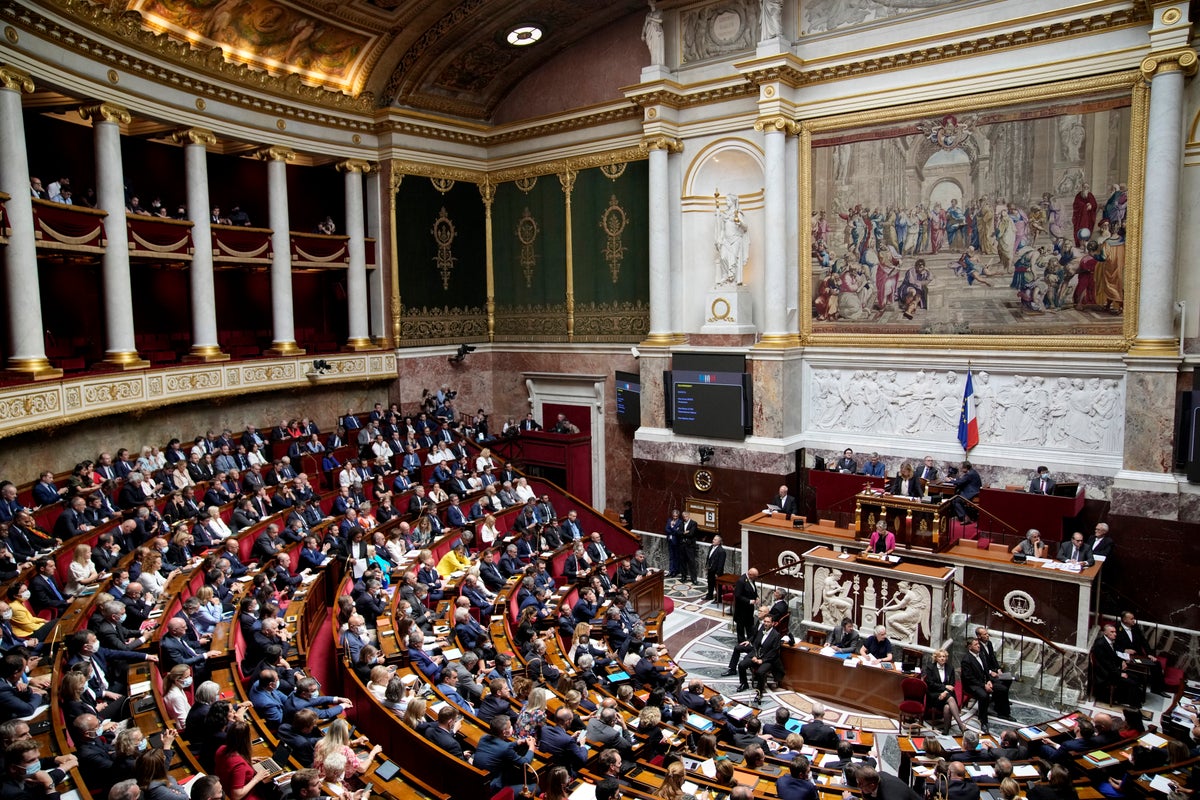
Lawmakers in France's lower house of parliament began debating a proposal Thursday to enshrine abortion rights in the country’s constitution, the first step in a lengthy and uncertain legislative battle prompted by the rollback of abortion rights in the United States.
Authors of the proposal, from a left-wing coalition, argued it was aimed at “protecting and guaranteeing the fundamental right to voluntary termination of pregnancy and to contraception by inscribing it into our Constitution.”
Abortion in France was decriminalized under a key 1975 law, but there is nothing in the constitution that would guarantee abortion rights.
Mathilde Panot, head of hard-left France Unbowed group at the National Assembly and co-signatory of the proposal, said “our intent is clear: we want not to leave any chance to people opposed to the right to abortion and to contraception."
French Justice Minister Eric Dupond-Moretti said the centrist government supports the initiative.
He referred to the U.S. Supreme Court’s decision in June, which eliminated the federal constitutional right to abortion and left the decision to the states.
“The right to abortion we thought was acquired for 50 years (in the U.S.) was in reality not at all acquired," he said.
A recent poll showed that over 80% of the French population supports the right to abortion. The results were consistent with previous surveys. The same poll also showed that a solid majority of people are in favor of enshrining it into the constitution.
Another bill to inscribe the right to abortion into the constitution, initiated by a group of lawmakers from French President Emmanuel Macron’s centrist alliance, Renaissance, will also be debated Monday in the lower house, the National Assembly. That text does not include a mention to the right to contraception.
Both proposals are only the first step of a lengthy process without a certain result.
To be approved, any measure must be first approved by majorities in the National Assembly and the upper house, the Senate, and then in a nationwide referendum.
The Senate, where the conservative party, The Republicans, has a majority, rejected a similar proposal in September. The Republicans senators argued the measure is not needed since the right to abortion is not under threat in France.
Dupond-Moretti said he was “hopeful” that some senators could change their mind and form a majority in favor.
He and other proponents of constitutional change argue that French lawmakers should not take any chances on fundamental rights, since it is easier to change the law than the constitution.
The right to abortion enjoys broad support across the French political spectrum, including from Marine Le Pen’s far-right National Rally. Yet Le Pen in recent days said she is opposed to the leftist proposal because she thinks it could potentially lead to extending or abolishing the time limit at which a pregnancy can be terminated.







